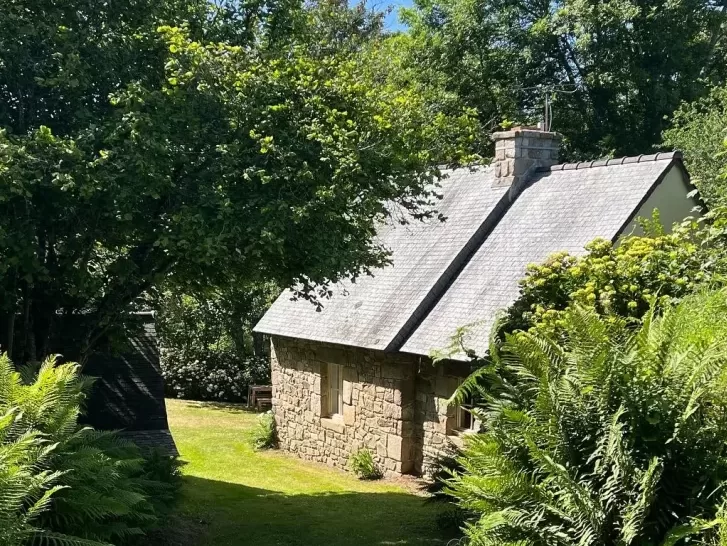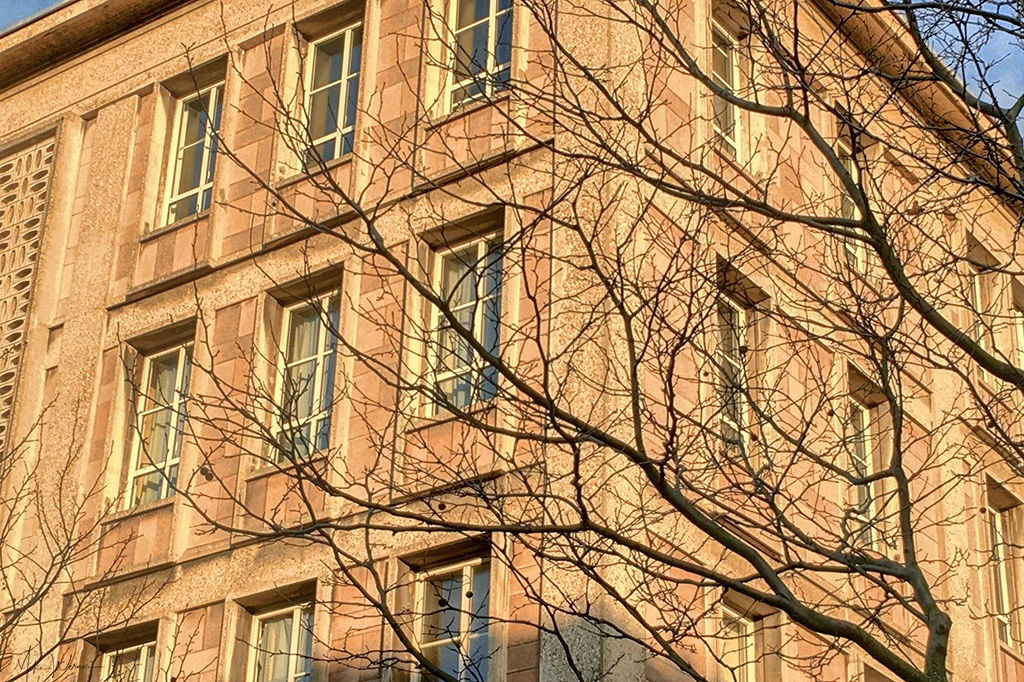Experience Brittany: learn French—cooking with Christine Todd – interview
To have another language is to possess a second soul.
Charlemagne
I have had a love of all things related to France for decades – its history, culture, people, and cuisine to name a few. To be in France sets my soul on fire and I long for my beloved adopted country when I am not there.
There is one thing, however, that I continue to find intimidating – the language.
I took a French class in high school (and then promptly forgot the majority of what I learned). I completed a study abroad program in Paris during my time at Michigan State University and I have taken private lessons here and there, but I continue to feel like I can’t speak the language as confidently as I would like.
I dust off the old grammar book from time to time, only to complete a few pages and put it aside again. No matter how hard I try, finding pleasure in memorizing grammar rules—and the many exceptions to those rules—simply never happens.
How to meet locals & ‘Experience Brittany’ without great French
It is true that without that confidence in speaking and understanding, French, it is often hard to meet and make real connections with locals.
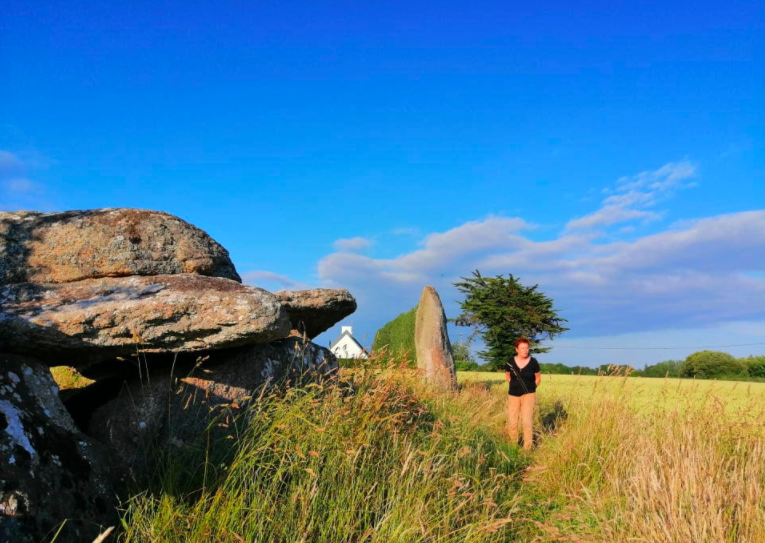
Recently, I spoke with Christine Todd, an educator, and entrepreneur, who understands the issues non-native French speakers struggle with and has created a business to help people overcome these challenges.
In her enterprise ‘Cooking with Words‘, Christine provides guests with a unique opportunity to learn and practice the language through simple and practical immersive experiences at her home in southern Brittany. Such experiences include going to the market and buying fresh produce to later use in simple recipes for preparing regional dishes.
What’s unusual, is that Christine
— connects guests with locals with a focus on mutual cultural understanding.
— She provides lodging, a lovely garden to relax in, and outings that suit her guests’ interests.
What could be better?
I recently traveled to Christine’s home in Moëlan-sur-Mer located in the Finistère department of Brittany, France.
I spent a few days getting to know her and the area in which she lives.
During an interview, I learned about her professional background and life experiences and what she hopes to achieve in her relatively new business venture.
As a budding entrepreneur, I am always interested in learning about why and how people established their businesses and I hope you find this information interesting as well.

Allow me to introduce Christine Todd: ‘Cooking with words’
Upon arrival, I found Christine to be energetic and kind with a strong desire to make my stay as comfortable and pleasant as possible. She is flexible, and adapts plans to her guest’s interests… and the sometimes unpredictable weather that Brittany is famous for.
When we traveled about town, she was full of anecdotes about the area.
I learned about quite a range of things beyond the French language during my short stay:
- wine pairing with meals,
- the correct way to hold a glass of wine,
- how to eat crustaceans properly and more…
- But it was the new French expressions and cultural references that have since helped me the most during future conversations with locals. Just one example is the comedian Colouche who started restaus du cœur for the poor.
What a perfect location
Christine’s home is perfectly situated, as it is a few minutes drive to the sea, the well-known G34 hiking trails, ancient stones, and historical sites. She is also only about 30 minutes to Lorient, which hosts a variety of cultural events such as the Inter Celtic festival. This close proximity to a wide variety of places means there is always something to do, rain or shine. One can take a hike, a swim, and/or partake in a variety of cultural activities.
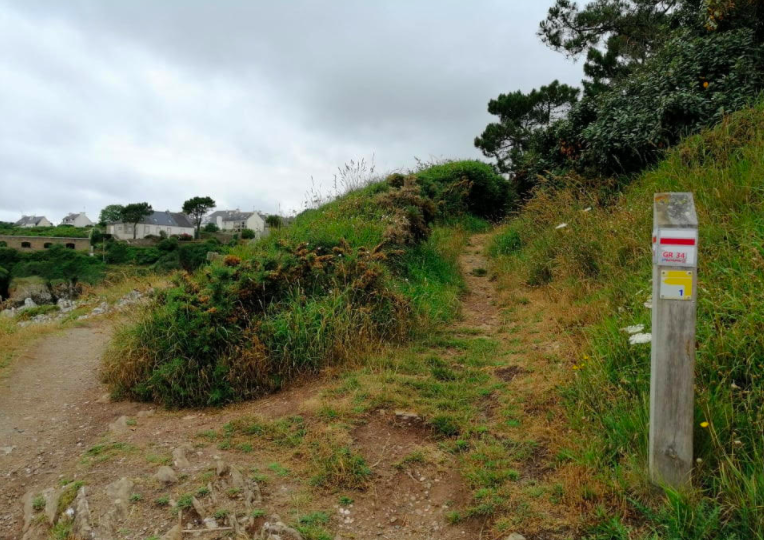
G34 hiking trail sign 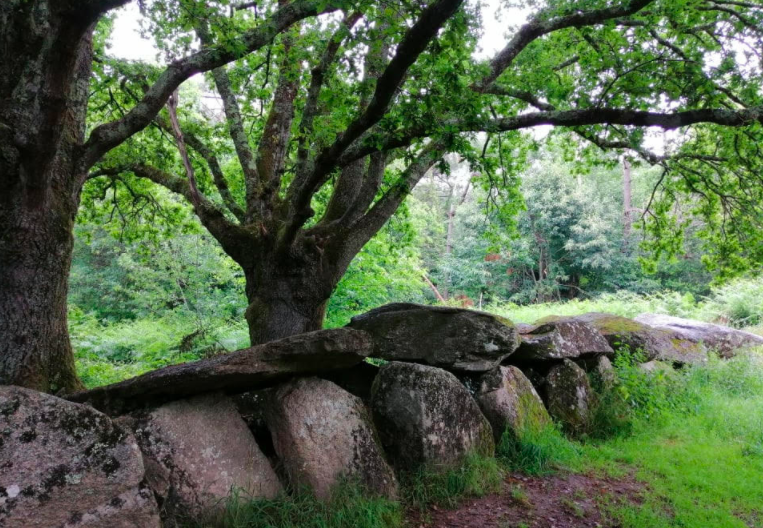
Dolmens in the forests
One afternoon, we sat around her kitchen table and she was happy to talk about what prompted her to undertake her entrepreneurial venture. I’m delighted to share excerpts from our discussion:
Amy: Christine, please tell me a little about yourself:
Christine: “I was born in Brittany. My father was in the navy so I’ve always traveled the world. I married an Englishman and had two children. We lived in Wellington for a time and I ran a creperie. That was good fun. I was a teacher for many years. I worked with young students to the university level. Some students had no diploma and some were at private schools. All backgrounds really.”
Amy: How have your life experiences led you to create your business?
Christine: “I really enjoy meeting people from different countries. I always have. I can see that many of them are struggling to communicate and some are stressed. They are stressed about work or family or because they can’t speak and meet people. I know it’s not always easy. I wanted to help them and show them that learning can be fun actually. I was teaching last year and because of the pandemic, everything changed. I was teaching but wanted to retire and do something else, something to combine meeting new people with language learning. And to give them experiences they would not have otherwise, you know.”
Last summer, Christine began to invite people into her home on the weekend for an immersive language experience, but one in which there was no pressure to “learn french”. Rather, she preferred to naturally incorporate words and phrases into discussions, with cultural references sprinkled in.
Christine is really the bridge to connecting people with each other. In fact, small groups of women can come together or she can arrange for different solo travelers to meet at her home. She prefers that people plan for a visit of several days because by the 2nd or 3rd-day guests are gathering around the kitchen island, enjoying each other’s company, and Christine takes it all in. For her, this is the most fun, to see people coming out of their shells and engaging with people they didn’t know previously. Christine taught until April of this year and is now completely focused on her business.
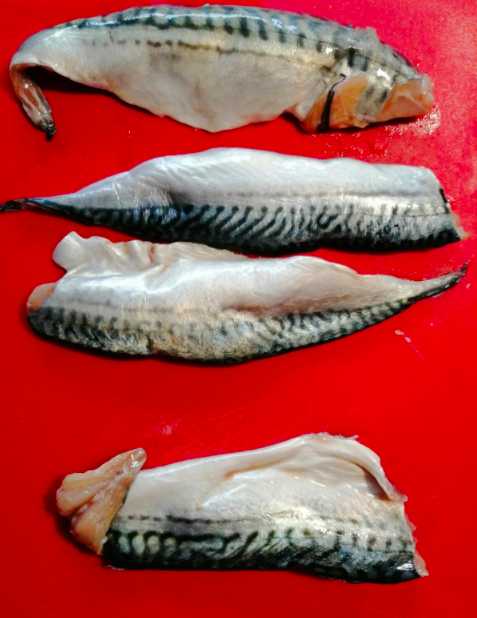
Amy: I’m curious if people need to have a certain level of French to participate in the program.
Christine: “No, no. Of course, it’s nice for people to have a level of French so they can speak together, but it is not necessary. They would just learn a few words and we talk about the culture. People can be beginners. Of course, it’s nice to have a conversation in French but this can come later. The importance is that people enjoy themselves, relax, and try something new. Life can be stressful but cooking and learning shouldn’t be.”
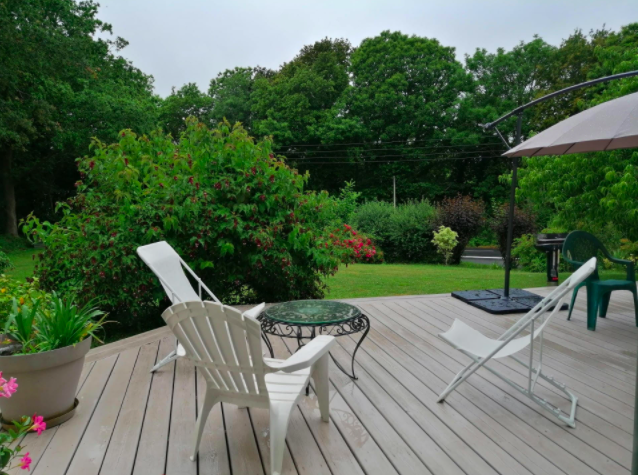
Amy: How do people learn French with you then, i.e. what is your approach to teaching? Do you use worksheets, books, etc?
Christine: “I don’t usually use worksheets as that is that is not my type of teaching. I give them a little book with vocabulary for things like vegetables because you know, we go to the market to buy things for the meals. Also, little cultural facts and pages for them to take notes if they like. It’s supposed to be fun, not like being at school. Sometimes we do sit down and talk about (grammar) rules if they want. But I really want them to do things and learn.
Amy: It’s similar to how children learn French and English then. You didn’t sit down with your children, for example, and talk about all of the rules and conjugations, etc.
Christine: (laughs) “No no, they would not have liked that at all! They just learned through immersion.”
In addition to learning words, phrases, and new recipes, Christine believes in introducing her guests to friends who live in the area. Over a light meal and glass of wine, people can connect and, if they want to, practice some new phrases. Her friends, in fact, have been students of hers for some time and are willing to put their lessons to the test. When I visited, for example, I met Christine’s daughter and two friends. It was a lovely evening filled with laughter, good food, and lively discussion.
Amy: Tell us how you connect your guests with locals.
Christine: “I have many friends in the area and I usually invite them over to have a drink. I arrange small parties between them so that they can have a good chat. Their English is not great, but they can communicate of course. And they’re willing to try. And they are happy to practise English with my guests. It’s very nice actually. Guests can see how French people behave, how they speak. My friends that you met, they’ve been coming every week to learn English and they are happy to practice.”
Amy: What if someone doesn’t consider themselves to be an experienced cook?
Christine: “It doesn’t matter. The dishes we make together are very simple, with a handful of ingredients that people often have in their homes. I want to show people that cooking, it’s not scary you know. It’s much easier than people think. And there is much less waste with simple foods, no boxes or cartons for example. It’s also much less expensive. People who have stayed here were surprised at how easy it was to cook good food and they’re very happy when they leave. They can use these recipes at home and friends can have a taste of Brittany. They walk away with something we have made together.”
Amy: How do you tailor your program to meet guests’ needs
Christine: “I ask people what they are interested in. We can go around together when they are here and I can show them different sites that match their interests.”
When Christine and I were chatting, for example, I mentioned that I have read quite a few books on the French Resistance during World War II. She immediately remembered a site near her home, a memorial for several Resistance members who were killed by the Germans at the close of the war and we went to the site. I appreciated that she has so much knowledge about the area in which she lives and was flexible enough to incorporate my interests into the plan she had created for my stay. When we visited the site, it was quite emotional as it truly brought the stories I had read to light. It is an experience that I won’t soon forget.
Amy: Let’s talk a little about logistics. How does your program work and how long can I stay?
Christine: “People can contact me on Facebook, Messenger, my website, etc. Then we talk and we agree on how long to stay. I tell them I would like them to stay for 3 or 4 days ideally, but you can stay longer or shorter. We decide on the dates and what you are interested in and what you want to do and I just adapt to the people’s wishes and that’s it. We agree on the date. People can come from May to October when the weather is still nice. Once you arrive here, we do whatever you are happy with. We can cook together, we can have a glass of wine. We can talk about the wine if you like. You can have a rest on the terrace and look at the garden, whatever you like. I just want people to be happy and enjoy themselves.”
A different language is a different vision of life.
Federico Fellini
Amy: What did you do to prepare yourself for having guests in the home?
Christine: “When I first started, I was working you know so people came on the weekends. I went around and around and rehearsing the meals. See where it could go wrong (laughs). I practiced the recipes and made them my own. I should say that people get a copy of the recipe that we used. They walk away with what they made together.”
Amy: If someone were hoping to start a new business in France, do you have any advice for them?
Christine: “We all know about the French administration (laughs). It takes time to get everything in order. It is important to do research. Don’t just jump into it. I prepared for a long time. I have an auto-entrepreneur status, all of the insurance etc. You want to make sure everything is in place before you start. As I am doing this for fun you know, I am not focused on making money, so I am fairly relaxed about it. I’m doing it to meet people and connect people so I don’t need it to survive. It would be different from someone who needs to survive on their business. They need to be much more careful in their planning”
Though I spent three days at Christine’s home, time went very quickly and I had to board my train back to Dinan. I could see why she wants her guests to stay for several days rather than a few, if possible. I was so happy to have tried some new, regional dishes, met interesting people and visited the magnificent beaches and historical sites. It is for these reasons that I hope everyone wanting to visit France has an experience like this. It left me completely refreshed and more eager than ever to improve my language skills.
What do you find most challenging when it comes to learning and practicing French? How do you connect with the locals when traveling? Please share your thoughts and experiences below.
Christine Todd: www.cookingwithwords.com
Image credits:All images copyright Amy Gruber
Experience Brittany
The Ultimate Guide to Brittany
A series of articles with a focus on wellbeing & nature
From the Brittany Coast to Forests and more…
1. Experience Brittany: a hidden gem at the water’s edge
2. Experience Brittany: Forest Bathing
3. Experience Brittany: Outdoor activities & natural beauty
4. Experience Brittany: learn French—cooking with Christine Todd – interview (this one)
5. Experience Brittany: the Rance River—serenity and significance
and many more to come…
ALSO don’t miss our LIVE chronicle of EXPERIENCE BRITTANY
BINGE on BRITTANY: The Nature Cocktail
and many more to come…
ALSO don’t miss our LIVE chronicle of EXPERIENCE BRITTANY
BINGE on BRITTANY: The Nature Cocktail


